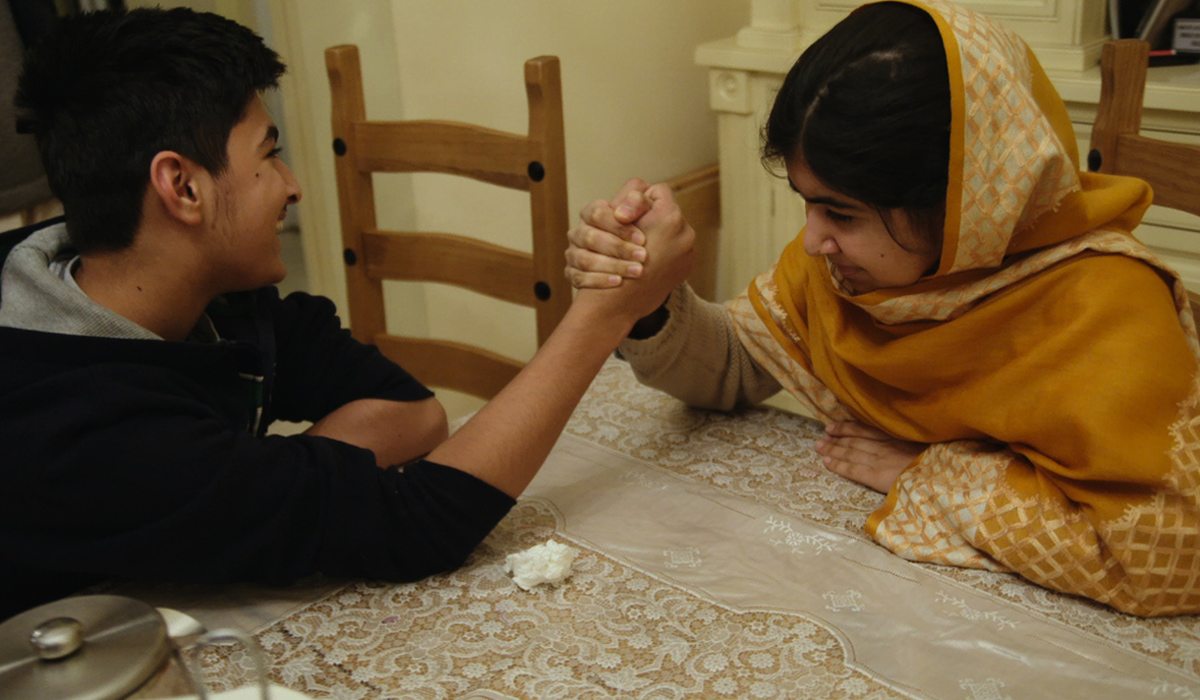
As the GeekDad of two little girls, I’m always on the lookout for inspirational women my children can look up to. Today’s leading contender is Malala Yousafzai, a Pakistani teenager who stood up to the Taliban about her right to an education, and was shot in the head for her defiance.
Fortunately for the world, Malala survived the attack and soon became an internationally-known humanitarian and the youngest-ever Nobel Peace Prize winner. Her story is the subject of the new documentary He Named Me Malala, now playing in theaters across the country.
Directed by Davis Guggenheim, He Named Me Malala presents a dual narrative about its subject. The film follows Malala in her current life as a student living in London (in between her worldwide travel as an education rights advocate), but flashbacks to her childhood and the rise of the Taliban around her home are intertwined throughout. Stunning cinematography by Erich Roland is captivating during the present-day scenes, while many of the flashbacks are wonderfully animated with a simple pastel color scheme. This is a visually-engaging documentary, to be sure.
We are given a detailed glimpse into Malala’s family life and upbringing, and it doesn’t take too long to see that her passion for education stems from her father, Ziauddin Yousafzai. Ziauddin dreamed of starting his own school program to teach children. As the Taliban forces rose to power and began dictating their will across the region, Ziauddin spoke out publically against the oppressive regime and their demand to stop providing education for girls. While there is some question as to whether Ziauddin is the true voice behind Malala’s full-throated advocacy for education rights (he’s often seen by her side as she travels the world), Malala says she is her own person.
“My father only gave me the name Malala,” she says. “He didn’t make me Malala.”
While many of the media stories about Malala make her appear as a modern-day saint, the documentary shows us the human side of a 17-year-old girl. She fights with her brothers. She worries about fitting in with the girls of her class and blushes when looking at pictures of cute sports stars. And, while Malala was often at the top of her class while growing up in Pakistan, she’s struggling to keep up in her new school in London. Yes, even a Nobel Peace Prize winner isn’t perfect.
While the documentary covers the events surrounding Malala’s shooting, including showing pictures of the bloody bus seats after the attack, the film never lingers on images of violence. It serves as a fine introduction to Malala’s story and how an extremist group like the Taliban can assume dominance over a community, making this an excellent film for young teenagers ages 12 and up.
Other film writers have criticized this film for not going deeper in several areas, but they’ve missed the point. This isn’t a Frontline piece; it’s a documentary about a young girl meant to inspire other young girls (and boys, for that matter). In this world of body shaming and online snark, isn’t that wonderful?
Or, as Malala puts it: “I tell my story not because it’s unique. It’s the story of many girls.”



